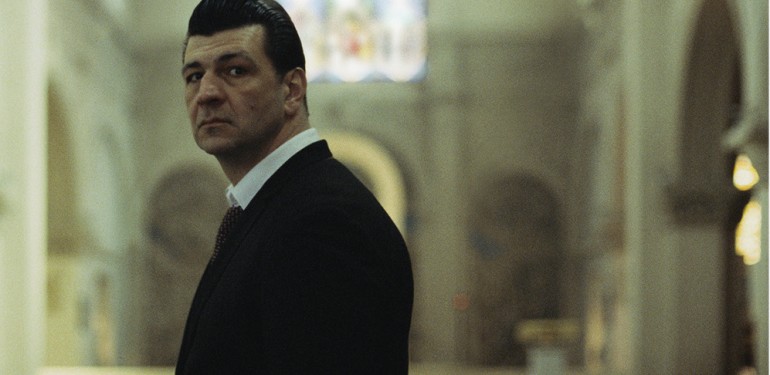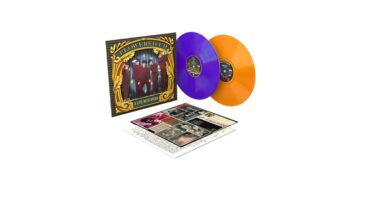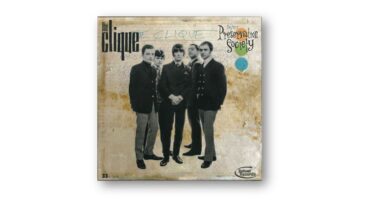It seems that Arnaud Rebotini’s mind dwells simultaneously in two different dimensions. One is a monochrome futuristic world occupied by him and his vintage electro/techno machines, which we catch a glimpse of in his solo project carrying his name. The other is a space where a few 20th century decades coexist sometime in the future, in an accursed place of perpetual night-time and corrupted entertainment, under throbbing disco beats and slashing rock riffs. This is the world of Godforsaken Roads.
Having passed through numerous musical genres during his career, including death metal and noise grunge, the French producer and singer has finally settled on a sort of analogue electro house, propelled by numerous vintage keyboards and drum machines. Perhaps out of nostalgia for traditional instruments, he created Black Strobe, currently consisting of band members Mathieu Zub and Benjamin Beaulieu, which fuses his favourite synths with rock to create a sound he himself defines as ‘frozen balearic gay biker house’.
Now behind this style definition lie two very different albums, the first of which is the Black Strobe 2007 debut, Burn Your Own Church, back when the band only consisted of Rebotini and fellow electro house DJ Ivan Smagghe. Together they created a mostly industrial set of songs, largely influenced by early European electronic acts such as Kraftwerk and Tangerine Dream, and sounding much like Rammstein’s purely electronic tracks. The one song that has received media attention by securing a place in the RocknRolla soundtrack – the cover of Bo Diddley’s ‘I’m a Man’ – is also the one that sticks out as stylistically incompatible with the rest of the album, but after Ivan Smagghe’s departure and the addition of some new crew members, it seems to be the new direction Rebotini has chosen for his band.
Black Strobe’s long-awaited return, Godforsaken Roads, expands on the theme of their hit song. A return to more traditional song writing, it draws on country, blues and all things American for inspiration and reimagines them into a modern setting, incorporating them into European electronic music. The result is, as its creator calls it – “Spaghetti Americana”, tunes that would be the perfect soundtrack to a modern-day western. Opener ‘Broken Phone Blues’ is a prime example, starting with classic bluesy vocals telling a hungover tale of waking up to a broken phone and scattered memories, that go onto a solid dance beat and an edgy guitar solo by Mathieu Zub.
The following tracks draw on the same line, with the ’50s fast-paced rock and roll riff of ‘Monkey Glands’, the textured dissonant guitars on the sinister ‘For Those Who Came On Earth Thru The Devil’s Asshole’, and the tender, bluesy moments of ‘Swamp Fever’ and ‘He Keeps On Calling Me’ layered onto EDM compositions. The latter number shows off Rebotini’s vocal skills, particularly impressive towards the end of the track where he achieves a choral effect without using background singers. There is also a cover of Johnny Cash’s ‘Folsom Prison Blues’, where the classic acoustic guitar has been traded for ominous analogue synths, transporting the protagonist to a 23rd-century high-tech Folsom Prison.
Not all the tracks, however, share the same rock/electro Wild West theme. ‘Blues Fight’, with its industrial-heavy beat, ironically has no trace of blues in it; and towards the end of the album, from ‘Dumped Boogie’ onwards, the songs turn into a series of 70s disco and 80s darkwave synths set to take you out on the dance floor. These switches certainly take one by surprise and make the album far from boring. Unfortunately, if the rock and roll riffs, synths and other elements used on the album’s more fusion tracks do remind me of a myriad of other acts, these last few dark-timbred EDM tracks sounds as if they’ve been taken straight out of Depeche Mode’s repertoire.
With Godforsaken Roads Rebotini and co do not deliver anything that hasn’t been heard before, as they have rather recycled old musical elements without creating any new ones. Yet the album is quite versatile at times in its approach to mixing different genres, creating blends as smooth as the frontman’s suited up image, where one can hardly recognise all the musical styles used. All in all, it is not a very original album, but an exceptionally enjoyable one.
Godforsaken Roads is out now on Black Strobe Records.
Mariana Nikolova









